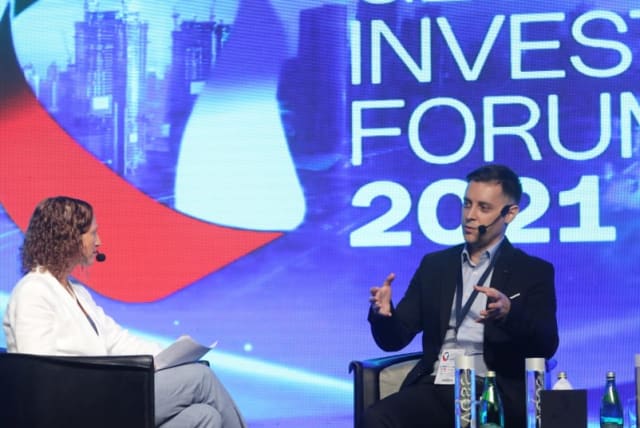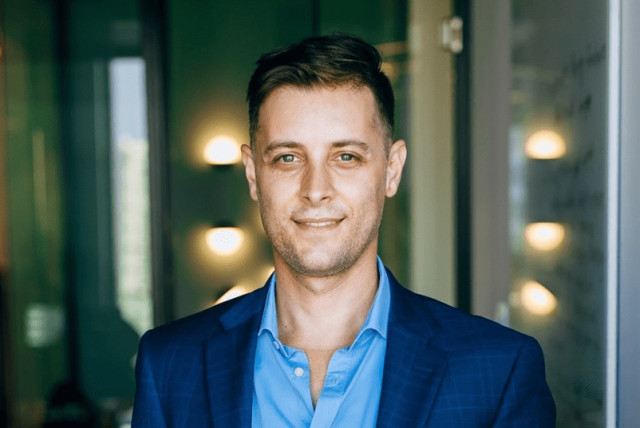Israel’s Immunai could be the secret weapon to faster drug approvals

American-Israeli company announces latest success story with AstraZeneca.
An American-Israeli immunomics company has announced another success in supporting a major pharmaceutical company in moving its drugs from the lab to clinical approval, The Jerusalem Post has learned.
“With our partners, we have succeeded in meeting agreed-upon deliverables,” said Noam Solomon, CEO of Immunai. “In the past two years, we have had a handful of success stories with top pharma companies and hospitals, and we are working with five of the top 15 pharma companies and expanding.”
Most recently, Immunai deployed its AI-based Clinical Trial Optimization engine to support research and development efforts for AstraZeneca’s Volrustomig. The specific details of the company’s work could not yet be made public.
“We did not create the drug,” Solomon explained. “This is AstraZeneca’s drug, which was already in clinical trials. However, certain difficult decisions must be made before advancing from Phase I to Phase II and then to Phase III. Without mentioning the specifics, we leveraged our clinical trial optimization engine to generate deep immunological insights, relevant and useful for AstraZeneca’s research and development, and were also included in AstraZeneca’s presentation at the ESMO (European Society Medical Oncology) congress a few months ago about how well it worked.”
Maurizio Scaltriti, vice president for Translational Medicine and Oncology R&D at AstraZeneca, said “ImmunAI’s technology is helping us understand how we can use our immunotherapy compounds in different types of cancers and which patients might benefit from these therapies.”
Leading the industry
Solomon said that the leading enabler of the tech industry in the past 30 years is advancement in hardware and computing power, best articulated with “Moore’s law,” which states that the strength of microprocessors grows exponentially over time. However, the opposite law in biotech – “Eroom’s law” – holds: the return on investment in therapeutics is decreasing over time and will soon be negative.
“That essentially means there is no business model for pharma companies,” said Solomon. “Think about what it means: 100s of billions of dollars are spent a year without a sensible business model.”
There are many reasons that over 90% of drug candidates that are developed never get approved. Multiple medications and companies are competing for Food and Drug Administration (FDA) approval for almost every biological pathway and every indication. It is also because as treatments have advanced and standards of care have improved, a new drug has to be significantly better than existing drugs to be approved.
Moreover, over the last five years, the FDA has asked drug companies to provide more data and statistics before moving from one phase to the next.
“This puts a lot of pressure on the biopharmaceutical industry to allocate significant resources to generate compelling statistical validation for their drugs,” Solomon said.
But this is also where Immunai can provide the most value.
“We developed a vertically integrated AI platform for drug development,” Solomon explained.
First, Immunai monitors the clinical trial results and statistics. Then, it monitors the molecular properties of the patients who will potentially receive the drug. They can do this through its immune database – AMICA, the world’s largest immune database.
Finally, Immunai applies generative and discriminative AI to AMICA to create medical and therapeutic data-driven insights. It is somewhat similar to “Moneyball” in baseball, where already over 20 years ago, baseball coaches leveraged empirical in-game baseball data to answer specific questions with statistics.
“Immunai is doing what I call immunomics, analogous to proteomics or genomics,” explained American biotechnician and businessman Robert Langer. “It involves mapping immune cells at single-cell resolution and their cell interactions to form a map of our human immune system.”
According to Langer, a professor at MIT, understanding immunology is crucial for comprehending, diagnosing, and combating diseases linked to the immune system. Immunomics empowers researchers to discern molecular and cellular pathways and gene and protein regulatory networks that distinguish between healthy and diseased individuals or those who respond positively to specific treatments versus those who do not. Furthermore, by assessing the individual immune responses at a personal level, there is potential for disease prevention before its onset.
Solomon said that developing an oncology drug, for example, can take over a decade and cost a company upwards of $2 billion. When Immunai gets involved to help the company make the right decisions, the process could be shorter and the probability of success higher.
This, said Langer, could not only save the pharma company money, but reduce hospitalization and improve patient care.
Immunai started in Tel Aviv and New York, but the company works internationally with 160 team members today, including over 90 with doctorates or medical degrees.
“We are on the path to becoming the market leader in this space,” said Solomon, “to help the biopharmaceutical companies develop drugs faster and better.”
Jerusalem Post Store
`; document.getElementById("linkPremium").innerHTML = cont; var divWithLink = document.getElementById("premium-link"); if (divWithLink !== null && divWithLink !== 'undefined') { divWithLink.style.border = "solid 1px #cb0f3e"; divWithLink.style.textAlign = "center"; divWithLink.style.marginBottom = "15px"; divWithLink.style.marginTop = "15px"; divWithLink.style.width = "100%"; divWithLink.style.backgroundColor = "#122952"; divWithLink.style.color = "#ffffff"; divWithLink.style.lineHeight = "1.5"; } } (function (v, i) { });


